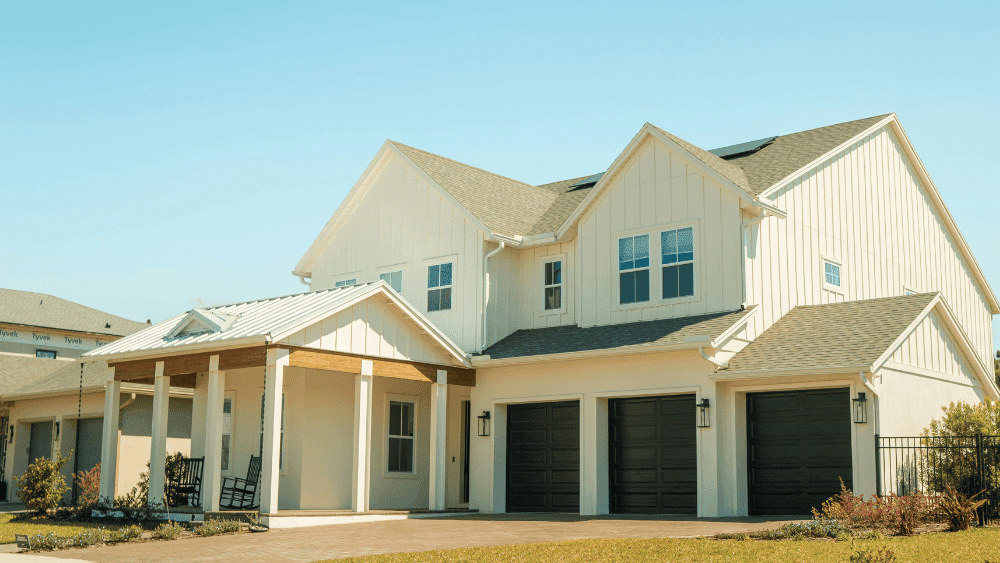
Thinking of selling a home in Florida? Whether you’re in Jacksonville, Miami, Tampa, or somewhere in between, selling your house can create a lot of planning questions, especially if you’re a first-time seller. You’re likely wondering what your Florida home is worth and how to get the best deal. In this handy guide, we’ll provide answers to some of the most common questions about managing a home sale in Florida. We’ll also share expert insights from a top Florida real estate agent — from setting the right price to tips that can help you get top dollar for your home. The Florida housing market is cooling as more homes become available, reducing competition among buyers. “Here in Central Florida, I’d say housing inventory is about balanced,” says Chuck Shaver, a HomeLight Elite agent who works with 71% more single-family homes than the average in his Central Florida market. “Here in Volusia County, we’re just over 5 months, probably about 6 months, so it’s a balanced market in my area.” A housing market is considered balanced when it has 4 to 6 months of inventory. This means it would take that many months to sell all available homes at the current sales pace. This balance ensures neither buyers nor sellers have a significant advantage, fostering a stable price environment. “I’d say the market is stable or declining overall, slightly declining,” Shaver says. Some factors pulling at the Florida market include: According to March 2025 data from the Florida Realtors Association: But even with cooling home sales and lower inbound migration rates, Florida still ranks among the 11 states with the highest net influx of residents from other states. Shaver says one of the biggest seller mistakes in Florida is overpricing. “Florida sellers often have the belief that they can price their home however they like because buyers are coming with a lot of cash from California, New York, and New Jersey,” he explains. But if you price your home too high, your listing could sit on the market too long, which can lead to price reductions and a lower final sale price. If you price it too low, you could miss out on proceeds. The goal is to price your home just right. “The best pricing strategy is to face reality and not overprice — that’s the big one — and recognize that we’re not in 2021 anymore,” Shaver says, adding that setting the right listing price is even more important now because buyers have more options. To determine the right listing price, start by looking at nearby recent sales of similar properties, called comps. Your agent will provide a comparative market analysis (CMA) to help you gain the best perspective. Factors like your home’s condition, location, and the existing market conditions in your part of the state will play a role. In more active markets, pricing your home slightly below market value can sometimes create a bidding war, helping you attract a higher selling price. The amount you’ll make from selling your Florida home depends on several key factors, including the final price, closing costs, and your outstanding mortgage balance. On average, Florida sellers can expect to pay selling costs in the range of 8% to 12% of the home’s price, including agent commissions, which can make up a large portion of these costs. Let’s look at an example that illustrates how a typical Florida seller might walk away from a home sale with $130,087 in proceeds. According to Experian, the average homeowner in Florida today has a mortgage debt of about $251,713. Using a median home price of $415,000 and the low range of 8% in estimated closing costs, here’s how your proceeds might play out: Of course, our simplified example doesn’t take into account additional costs you will likely have for home preparations, repairs, or moving expenses. As noted, the combined cost of selling a house in Florida can range between 8% to 12% of the home’s final price. Here’s a look at some typical Florida seller closing costs: “There’s a little bit of confusion sometimes over the listing agreement because a lot of people still are not familiar with the NAR lawsuit (involving buyer agent commissions) that happened last year,” Shaver explains. “Sellers sometimes believe that they can’t pay the [buyer’s agent] commission any longer, so sometimes they need clarification.”What’s the Florida housing market like right now?
How should I price my Florida home?
How much will I make selling a home in Florida?
What closing costs will I pay when selling a home in Florida?



